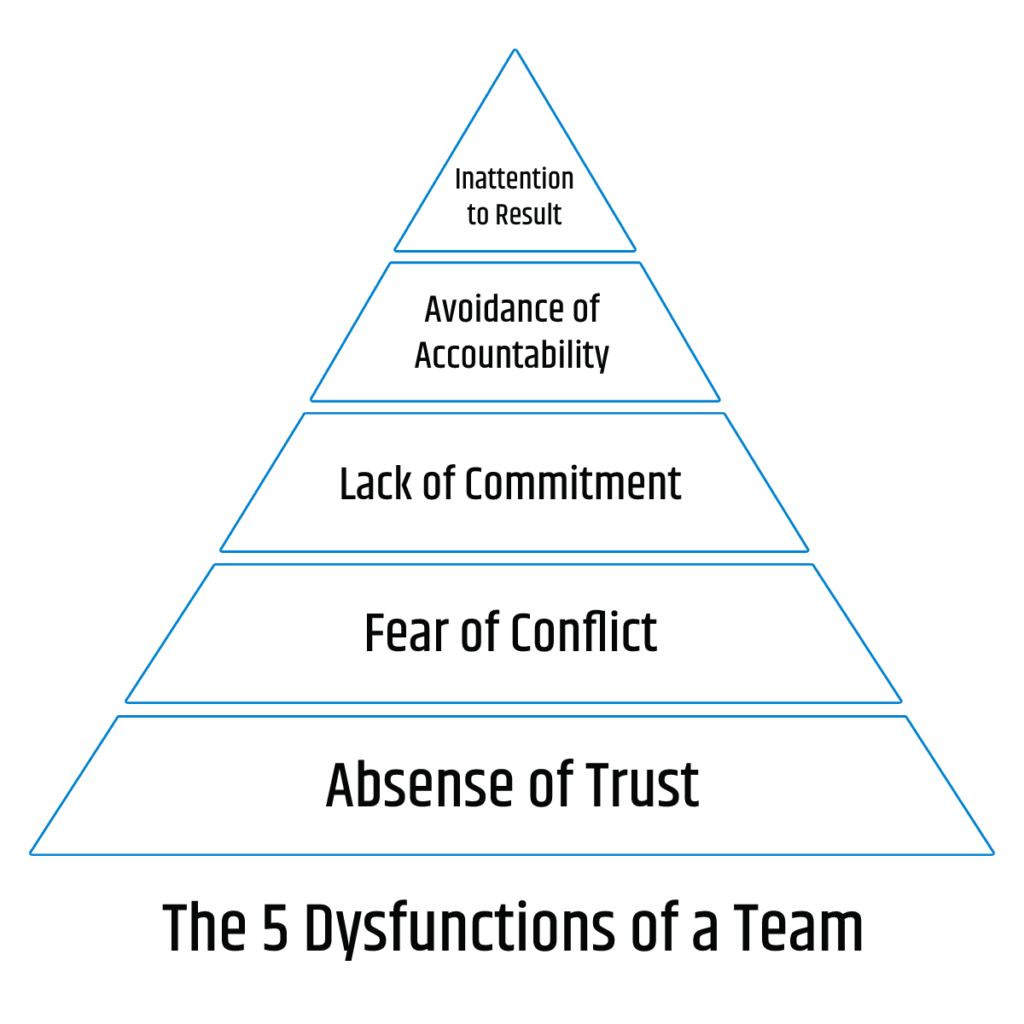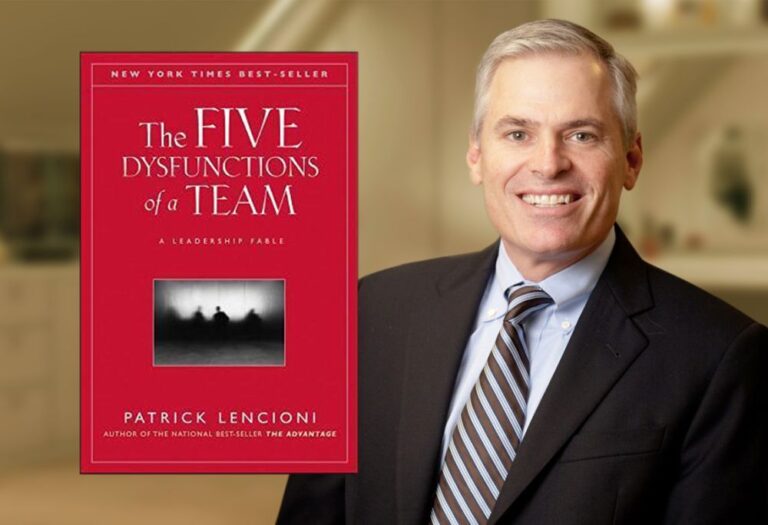The 5 Dysfunctions of a Team

To begin improving your team and to better understand the level of
dysfunction you are facing, ask yourself these simple questions:

Do team members openly and readily disclose their opinions?
Are team meetings compelling and productive?
Does the team come to decisions quickly and avoid getting bogged down by consensus?
Do team members confront one another about their shortcomings?
Do team members sacrifice their own interests for the good of the team?
Do team members ensure that poor performers feel pressure and the expectation to improve?
Although no team is perfect and even the best teams sometimes struggle with
one or more of the above issues, the finest organizations constantly work to
ensure that their answers are “yes.”
If you answered “no” to many of these questions, your team may need some work.

The first step toward building your team and reducing politics & confusion is to understand that there are five dysfunctions to contend with, and address each that applies, one by one.

The Dysfunctions

Members of great teams trust one another on a fundamental, emotional level, and they are comfortable being vulnerable with each other about their weaknesses, mistakes, fears, and behaviors.
They get to a point where they can be completely open with one another, without filters. This is essential because . . .
Teams that trust one another are not afraid to engage in passionate dialogue around issues and decisions that are key to the organization’s success.
They do not hesitate to disagree with, challenge, and question one another, all in the spirit of finding the best answers, discovering the truth, and making great decisions. This is important because . . .
Teams that engage in unfiltered conflict are able to achieve genuine buy-in around important decisions, even when various members of the team initially disagree.
That’s because they ensure that all opinions and ideas are put on the table and considered, giving confidence to team members that no stone has been left unturned. This is critical because . . .
Teams that commit to decisions and standards of performance do not hesitate to hold one another accountable for adhering to those decisions and standards.
What is more, they don’t rely on the team leader as the primary source of accountability; they go directly to their peers. This matters because . . .
Teams that trust one another, engage in conflict, commit to decisions, and hold one another accountable are very likely to set aside their individual needs and agendas and focus almost exclusively on what is best for the team.
They do not give in to the temptation to place their departments, career aspirations, or ego-driven status ahead of the collective results that define
team success.

The Rewards of Overcoming The 5 Dysfunctions of a Team

Functional teams avoid wasting time talking about the wrong issues and revisiting the same topics over and over again because of lack of buy-in.
Functional teams make higher quality decisions and accomplish more in less time and with less distraction and frustration.
“A” players rarely leave organizations where they are part of a cohesive team.
Creating a functional, cohesive team is one of the few remaining competitive advantages available to any organization looking for a powerful point of differentiation.
Successful teamwork is not about mastering subtle, sophisticated theories, but rather about embracing common sense with uncommon levels of discipline and persistence.
Ironically, teams succeed because they are exceedingly human. By acknowledging the imperfections of their humanity, members of functional teams overcome the natural tendencies that make teamwork so elusive.
In this workshop, the focus is on providing practical tools for overcoming each of the dysfunctions. So instead of simply learning theory as a prelude to improvement, workshop participants actually take the first steps toward becoming or leading a more highly functioning team.
The workshop is conducted for two different set of participants.


For Team

To improve on each of the five key fundamentals: trust, conflict, commitment, accountability, and results

For Team Leaders

The workshop is based on the New York Times Bestseller “The Five Dysfunctions of a Team” authored by Patrick Lencioni in year 2002


Invite us for…

a free assessment, to find where does your team stand on each of the five dysfunctions.
